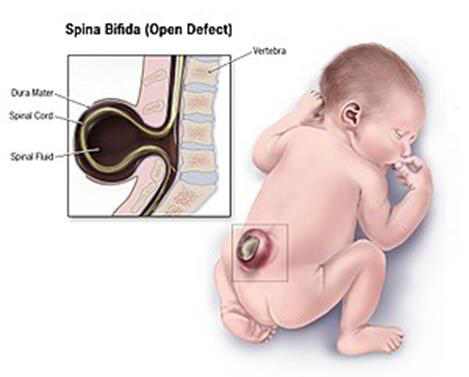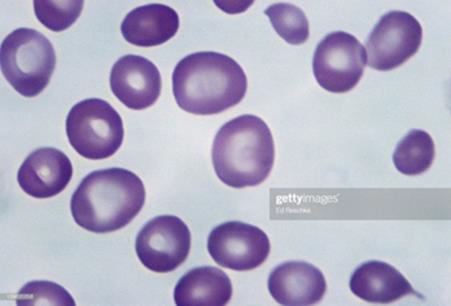Joseph R. Anticaglia MD
Medical Advisory Board
The B complex vitamins are a group of water soluble nutrients that are found in animal proteins, leafy green vegetables and whole grains.
They reduce the risk of heart disease and stroke and are needed by the nervous system to function normally. They lower LDH (“lousy” cholesterol) and increase HDL (healthy cholesterol) and are necessary for red blood production.
These vitamins play a valuable role in the manufacture and repair of DNA and help in energy production.
They also act as coenzymes enabling enzymes to increase the speed of chemical reactions in the body. Without enzymes, the biochemical reactions within the cells would be too slow to keep us alive.
Without the help of B vitamins, enzymes would be as useful as an airplane with one wing. There are eight interdependent B vitamins working as a team to get the best outcomes.
Eight B Vitamins: What follows are snapshots of the following vitamins
- Vitamin B1 — Thiamin
- Vitamin B2 — Riboflavin
- Vitamin B3 — Niacin
- Vitamin B5 — Pantothenic Acid
- Vitamin B6 — Pyridoxine
- Vitamin B7 — Biotin
- Vitamin B9 — Folic Acid or Folate
- Vitamin B12 — Cyanocobalamin
Vitamin B1: Thiamin
Thiamin is a coenzyme that plays an important role in energy metabolism. Carbohydrates, fats and protein give the body fuel for energy. This vitamin helps the body use that fuel. It helps in the transmission of nerve impulses and consequently muscle function. A deficiency of Vitamin B1 causes Beriberi, resulting in pain and weakness of the lower limbs and balance difficulties. Incorporate grains, seeds, moderate amounts of ham, liver and pork into your diet. Alcohol abuse can lead to a severe form of thiamin deficiency.
Vitamin B2: Riboflavin
Vitamin B2 is useful in energy metabolism; it supports cell function and growth of cells. Riboflavin acts as a B complex teammate helping other B vitamins to function well. Deficiency symptoms might include sensitivity to light, cracks and sores at the corners of the mouth and swollen tongue. Food sources include leafy green vegetables, dairy products and whole grains.
Vitamin B3: Niacin
Niacin is needed for healthy circulation, healthy skin and energy metabolism. The amino acid tryptophan is found in many proteins and is converted to niacin in the body. A deficiency causes pellagra, known as the three Ds-diarrhea, dementia and dermatitis. Dietary sources include salmon, carrots, eggs and sweet potatoes.
The niacin flush happens after taking large doses of niacin. It causes the capillaries, tinny blood vessels in the skin, to dilate. Most often the face turns red, which is accompanied by a warm, burning, itching sensation.
Vitamin B9 Folate: Folic Acid
Folic acid is the synthetic form of this water soluble B9 vitamin. It’s pivotal for human growth and development. It helps manufacture and maintain new cells, especially, red blood cells. It may reduce the blood level of homocysteine and by doing so reduce the risk of heart disease and stroke.
Deficiency causes anemia, digestive problems; of particular concern are birth defects. Normal folic acid blood levels before and during pregnancy reduces the risk of a mother giving birth to a child suffering with Spina bifida. This is a devastating neural tube defect characterized by an incomplete closure of the backbone, the bony covering of the spinal cord. Fortified food products, leafy vegetables, beans and spinach are good food sources.

Vitamin B5: Pantothenic Acid
This water-soluble vitamin is needed to help synthesize and metabolize carbohydrates, fats and proteins and coenzyme-A. Deficiency of this vitamin might lead to fatigue, insomnia and vomiting. To get more vitamin B5 in your diet add avocado, legumes, yogurt and whole grain cereals. This vitamin is available in many foods.
Vitamin B6: Pyrodoxine
B6 helps to make red blood cells and convert the amino acid tryptophan to niacin and serotonin. It’s important for immune function and helps in the manufacturing of neurotransmitterschemicals that allow communication between brain and nerve cells. Deficiency is associated with anemia, confusion and depression. Good sources of B6 are animal and dairy products, bananas and eggs.
Vitamin B7: Biotin
Biotin is a coenzyme important in energy metabolism allowing many enzymes to work properly. Deficiency has been associated with abnormal heart rhythm, nausea and indigestion. Broccoli, cauliflower, nuts, spinach, avocado and fish are good sources of biotin.
Vitamin B12: Cyanocobalamin
Folate and vitamin B12 are closely related. Vitamin B12 influences the development and maintenance of nerve cells and red blood cells. B12 helps the development of RNA and DNA It also helps to maintain the sheaths, the coverings that surround the nerve fibers.
Only animal foods contain B12. Deficiency often is secondary to malabsorption problems which can lead to anemia and nerve damage. One reason for poor absorption is too little stomach acid which prevents the release of vitamin B12 from food. Another reason is the lack of intrinsic factor, a substance made and secreted by the stomach needed for the absorption of vitamin B12.


Best sources of vitamin B12 are derived from animal products that include meat, poultry, fish and dairy products. Strict vegetarians are at risk for B12 deficiency because of lack of animal products in their diet.
The best way to get all eight B vitamins and to increase the likelihood of optimal health is to eat a nourishing, well balanced diet. It’s needed for the normal metabolism of fats, carbohydrates and protein. B vitamins play important roles in blood cell production, memory and the interactions between the brain and nervous system. In short, we depend on B vitamins for optimal health.
References
- United States Department of Agriculture; Vitamins and Minerals
- Sizer & Whitney; Nutrition; The Vitamins; Cengage, 2017
- Anticaglia, Joseph R; Vitamin Basics; Doctor’s Column, HC Smart, 2019
This article is intended solely as a learning experience. Please consult your physician for diagnostic and treatment options.

